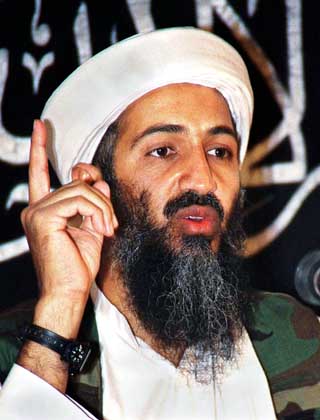The location of Osama’s death underlines the work required on Pakistan
After a decade of anxiety, fear and anticipation, the friends and families of the victims of 9/11 have finally received closure. Osama bin Laden was killed in his hideout in Abbottabad in Pakistan through a special operation by U.S. forces in the wee hours of May 1. Osama was found hiding in a mansion, just kilometers from a Pakistani military academy and a few hours from Islamabad.
 Though Osama’s killing is a humongous achievement for the U.S. counterterrorism operations and intelligence services, and is sure to affect the morale of the al- Qaeda foot-soldiers, it is by no means the end of the war on terrorism. As security agencies (particularly in US, Afghanistan, India and Pakistan) prepare for a backlash of the killing, it would be necessary to capture the moment and the momentum, and drill deeper to eradicate more such terrorists. The U.S. cannot relax and retreat now that its primary target has been eliminated; it should push forward even harder.
Though Osama’s killing is a humongous achievement for the U.S. counterterrorism operations and intelligence services, and is sure to affect the morale of the al- Qaeda foot-soldiers, it is by no means the end of the war on terrorism. As security agencies (particularly in US, Afghanistan, India and Pakistan) prepare for a backlash of the killing, it would be necessary to capture the moment and the momentum, and drill deeper to eradicate more such terrorists. The U.S. cannot relax and retreat now that its primary target has been eliminated; it should push forward even harder.
Equally important is dealing with Pakistan. The very fact that Osama bin Laden was found hiding in a ‘mansion’ near a Pakistani military academy, probably for about five years, reconfirms doubts about Pakistan’s support and genuine participation in the war on terror. Given the “efficiency” of the ISI (Pakistan secret service) and the Pakistan Army, it seems improbable that they were oblivious to the location of Osama, on their soil and close to their elite establishment. Rather, it seems as if Osama was secure under the protection of the military and intelligence elite who frequented the region. Otherwise, why would he choose such a “dangerous” location to hide?
To make matters worse for Pakistan, the entire operation was kept secret from its forces, and they did not participate in it in any manner. It is a humiliating display of the distrust for Pakistan, and further rocks the already precarious US-Pakistan relationship. An operation as crucial as this, on Pakistani soil, without the knowledge and participation of Pakistan, is a big slap in its face. From an Indian perspective, it vindicates India’s claims about Pakistan harboring terrorists.
It is about time the U.S. realized and acted upon the double-standards of Pakistan where it claims to fight terrorism and harbor terrorist organizations on its soil at the same time. Last month, David Headley (on trial in U.S. courts for prominent role in 26/11 Mumbai attacks) claimed links to ISI and the Pakistani army. India has submitted dossiers after dossiers on the involvement of Pakistan in 26/11, and other terrorist attacks in India. Wikileaks said U.S. considered ISI a terrorist organization. Khaled Sheikh Mohammed was caught in Rawalpindi, Pakistan.
The death of Osama bin Laden gives credence to the stories of dangerous liaisons that Pakistan entertains, and President Obama should take a realistic view of his AfPak strategy and engagement with Pakistan. This is a moment to honestly evaluate Pakistan, and the significant time that was wasted chasing mirages in Afghanistan.
